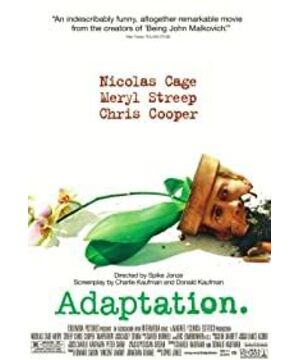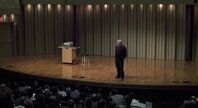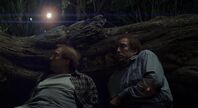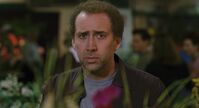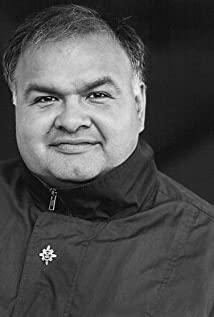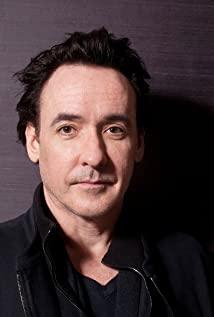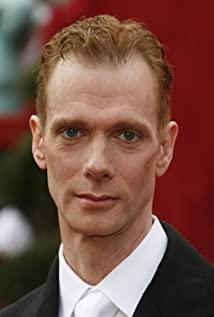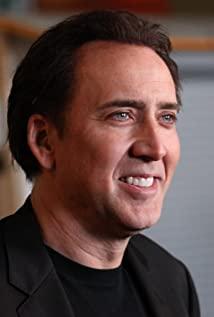Let's talk about what the movie says. Purely in terms of plot, the first three-quarters of the movie tells such a story. Screenwriter Charlie Kaufman lives with his younger brother, Donald Kaufman. The former is sensitive, cautious in words and deeds, but YY inwardly, a typical sullen man. The latter is wild and full of Hollywood colors. The story started when Charlie took the job of adapting the screenplay for The Orchid Thief and was bent on turning it into a non-Hollywood movie that just praised orchids and God. However, "The Orchid Thief" is too life-like, resulting in a lack of dramatic conflict in the script, which makes Charlie unable to start, falling into depression, autism, and hesitation. At the same time, Donald is a typical representative of Hollywood commercial screenwriters. His completed script "3" is full of various Hollywood-style classic bridges, which are greatly appreciated by the production company. At the same time, the film also uses flashbacks to describe the New Yorker reporter Susan Olin and the orchid thief prototype Laroche (I really don't know how to translate in Chinese) to complete the book together, and it is the plot of the literal story of the book. The next quarter, Charlie Donald recommended to listen to the class of famous Hollywood screenwriter McKee, so. Charlie and Donald set out to track down Oleen in order to work together on the adaptation, and discover that she was having an affair with Laroche and was taking drugs. After the exposure of stalk, they were chased by Oleen and Laroche again. As a result, Donald was killed in a car accident, Laroche was bitten to death by a crocodile, and Oleen was arrested by the police for murder. Charlie finds true love and has a happy ending.
So, purely in terms of plot, this is a bad movie, a piece of shit. So, I got everything wrong above.
In fact, what the movie describes is the whole idea of Charlie Kaufman's adaptation of "The Orchid Thief". Donald is Charlie's fantasy. The first three quarters of the film's stories about The Orchid Thief are true and are intended to express the film's theme. The last quarter is Kaufman's Hollywood fantasy, adaptation, adaptation, irony. So the storyline should go something like this: Charlie Kaufman got a job with a Hollywood studio to make The Orchid Thief a Hollywood-style movie, which is something he doesn't like and doesn't go back to. When I adapted it according to my own wishes, I found that the book "Orchid Thief" was too life-like, and it was impossible to adapt it into a movie. It was too boring, just like Charlie Kaufman's own life situation. The split personality he fantasizes about having a younger brother, Donald Kaufman. He is the complete opposite of himself, as detailed in the second paragraph of the article. But under the pressure of the company, Charlie could only ask for help from famous Hollywood screenwriters, so Charlie imagined that he and his younger brother would investigate the relationship between Olin and laroche, and found that it was full of sex, drugs and violence (all Hollywood elements), and finally in various In this dramatic conflict, Donald and Laroche are both killed, Olin is arrested, and Charlie is reunited with his lover, a Hollywood-style adaptation.
However, in this bizarre, complex and bizarre consciousness, Kaufman is constantly asking the audience what is life and what is life. Fragments of Darwin's theory of evolution appeared many times in the film, telling everyone, oh, so life is all about adapting, adapting, and adapting. So, as a screenwriter living in the world of Hollywood, you have to force yourself to make Hollywood-style adaptations, and not be able to follow what you love in your heart to complete the script. Natural selection, survival of the fittest, life is cruel. However, as we all know, in the world of GRE, Darwin has always appeared in a negative role, and adaptation will naturally be no exception. Kaufman satirizes this inhumane survival of the fittest with the absurdity of the entire film. If everyone adapts to the so-called mainstream culture, the only answer that everyone follows is cultural fascism, horrible and hateful. And people have to pursue what they love, feel their own insignificance, and worship God, as the film says.
The film also illustrates what love is through the normal Laroche and Olin in the first three quarters. The bohemian genius Laroche was an outlier from an early age. At first, he liked turtles, so he could go diving in the sea to catch turtles; later, he liked tropical fish, and he collected tropical fish in 60 fish tanks; and then he liked orchids, and he would never be near the sea again, although he still loved the ocean. So I went to collect orchids wholeheartedly, especially the most precious kind of orchids, the ghost orchid. Ou Lin asked, do you no longer have any nostalgia for the things you liked before? Laroche's answer is simple, It's all done, it's just fate. As for what love is, Laroche explained vulgarly and profoundly. There are 30,000 species of orchids in the world, each with its own unique insects that pollinate it. Every insect loves the kind of orchid it likes, so it makes love with this kind of orchid, and in the process of making love, the pollination and reproduction of the orchid is completed unknowingly, so life can survive. Love euqals making love, the primative motivation of life. All in all I think it's brilliant.
Of course, the irony in the last quarter of the film must be a bit of a punch, when Donald tells Charlie before he dies, You are what you love, not what loves you. This is Kaufman's best evaluation of adaptation, and it is also what impresses me the most.
PS: The biggest difference between adaptation and martial arts is that the former uses many simple stories to express the same profound theme, while the latter uses a complex story to express many shallow themes.
PSS: Love Cara Seymour, begging for photos
View more about Adaptation. reviews


